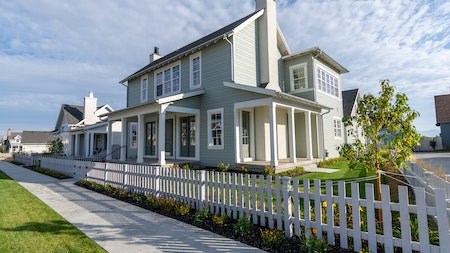While hiring a professional will be the most accurate way of determining what a property is worth, it is still useful for both investors and homeowners alike to know what factors could affect property values, as this could potentially affect their own pocket.
Regional Director and CEO of RE/MAX of Southern Africa, Adrian Goslett, explains that it is always useful to know what can affect the resale value of a property, as this will help homeowners to guard against anything that could cause their own property to depreciate in value.
To help homeowners protect the resale value of their homes, RE/MAX of Southern Africa explains three key factors that determine a home’s value:
Location
The location of a property is the biggest determining factor in the home’s value. Each suburb has its own maximum and minimum values based on previous sales that will largely dictate the price parameters for future sales. But, these parameters can change if demand for the area changes. The more desirable the location and the higher the demand for the area, the more expensive the homes in that area will become. The most desirable suburbs are typically located in the most convenient, trendy, beautiful, and/or secure parts of a country. Keep an eye out to see if anything in your suburb changes to make it more desirable (for example, if new trendy restaurants appear) or less desirable (for example, if homes are left abandoned).
External market conditions
Property values are based on the rules of demand versus supply and will constantly change over time in response to external market factors. If demand is greater than supply in a given market, property prices will increase. But, if there are more properties on the market than there are buyers, property prices will drop. When things like interest rates, inflation, and unemployment are on the rise, across the country, demand usually drops along with property prices. Similarly, during periods of economic flourishing, demand usually rises along with property prices. While it is virtually impossible to predict the market accurately, keeping abreast of the external market conditions can help you decide whether now is a good time to sell or not.
Appearance & condition of the home
Finally, the features and condition of the home itself will also determine the home’s value. This includes things such as the state of the roof, the number of bathrooms, and the size of the property. As simple as it sounds, the visual state of the property will also influence the value of the home, as it can make the property more or less desirable to potential buyers. Homeowners should keep on top of all home maintenance issues and keep the home modern and appealing to ensure that the resale value is not affected.
At the time when a property owner is ready to sell, hiring the right professional and following their advice should be a number one priority. “Many might not realise that there is a difference between an official valuation certificate and a real estate agent’s market assessment value of a property. The difference is that a property valuation can technically only be conducted by licensed appraisers. Some, but not all, real estate agents are licensed to provide an official valuation. But, all licensed real estate professionals will have the requisite expertise and access to information to provide a fair market assessment of the home’s value,” Goslett explains.
“It is important to note that valuation certificates come at a cost, while a property market assessment is provided for free and is equally effective for those hoping to sell their home at full market value,” Goslett concludes.
Writer : Kayla Ferguson




